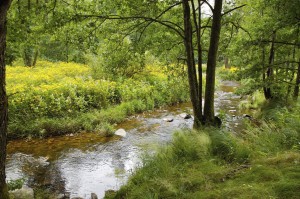Reasons to Conserve
For many people on city water in Fond du Lac County, water use represents an expensive household bill to pay. For these people and everyone in our community availability of safe water is also a concern.
Groundwater recharge, the process of precipitation making its way to underground aquifers where it is available to wells as drinking water, can take many years. The smarter we use our water, the longer we will have it.
Consider these facts:
- 100% of Fond du Lac County residents use groundwater as their primary drinking source. Whether you have your own well or a municipal well, you are drinking water from aquifers under your feet.
- Most of the water in wells has come from precipitation within a mile of your wellhead.
- Local land use practices (septic systems, unused wells, lawn fertilization, manure spreading, etc.) directly impact local water quality.
- Each of the county’s 51,000 milking cows needs 45 gallons of water a day to produce 100 pounds of milk.
Increased use of water can affect water availability and water quality. An example of this is arsenic contamination. Arsenic is a carcinogen which can create serious health concerns when ingested.
In Fond du Lac County, arsenic is naturally present in the bedrock near Waupun, Rosendale, and Towns of Taycheedah & Empire. When increased water use occurs, water levels drop and oxygen increases. When arsenic in the rock is exposed to oxygen, it is absorbed into the drinking water.
All private-well users in Fond du Lac County are encouraged to sample well water for arsenic at least once. If present, continue to monitor it over time. Treatment devices are available to remove arsenic and other contaminants from drinking water.
Here are some tips to reduce the quantity of water you use from the popular Arizona website WaterUseItWisely.com.
- Fix leaky faucets.
- Only run the dishwasher or washing machine when you have a full load.
- Consider a front-loading washing machine that uses half the water as a top-loader.
- Turn off the water when brushing teeth or shaving.
- Sweep your walks rather than hosing them off.
- Compost food scraps or use the garbage rather than running the garbage disposal.
- Set your water softener to regenerate only as often as necessary to ensure softness. This saves both water and salt.
- Add food coloring to your toilet tank to detect leaks (up to 200 gallons a day!) which are easily fixed.
- While waiting for the shower water to warm up, collect the cold water in a bucket and use it for flushing toilets or watering plants.
- Wash vegetables, fruits, and dishes in a bowl or tub of water rather than in running water from the faucet.
- Install a rain barrel outside to catch rain for watering plants.





